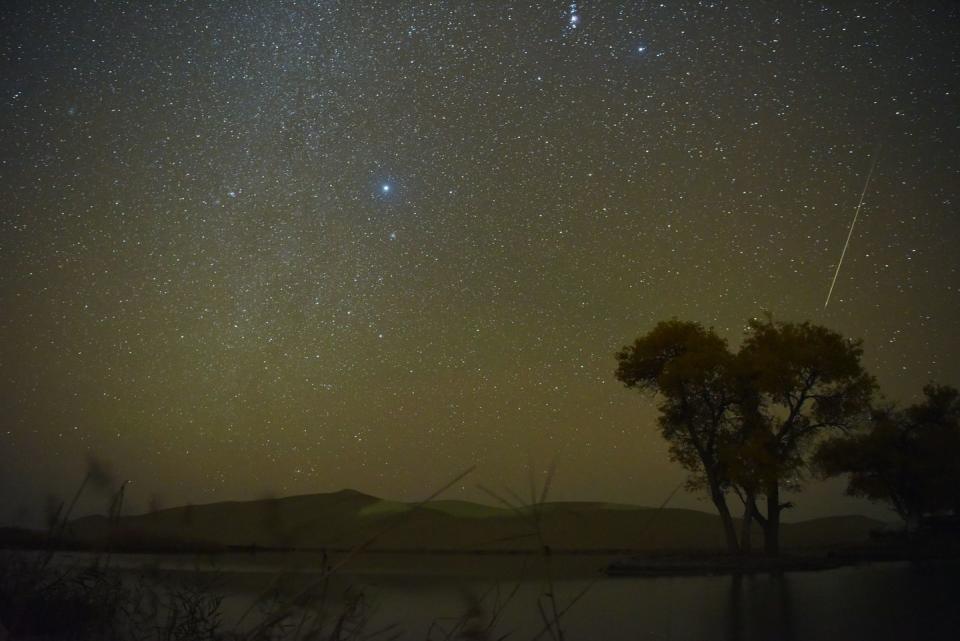The Orionid meteor shower will light up the sky later this month
The Orionid meteor shower will sweep across the UK this month, peaking on Friday 21st October 2022.
One of the most impressive displays in the meteoric calendar will begin to light up the sky on 2nd October and will last until around 7th November. The Orionids will peak on the night between 21st — 22nd October, so make sure not to miss it.
How can you see them?
To get the best view, find an area with little light pollution and look up to catch a glimpse of the Orionids. They can be seen from any direction if you have a clear, cloudless view. Finger's crossed the weather stays dry.
"Find an area well away from city or street lights. Come prepared with a sleeping bag, blanket or lawn chair," NASA explained in a blog post. "Lie flat on your back with your feet facing southeast if you are in the Northern Hemisphere or northeast if you are in the Southern Hemisphere, and look up, taking in as much of the sky as possible."

What causes the Orionids meteor shower 2022?
"Meteors will be visible all over the sky but they will appear to originate from close to the star Betelgeuse in the constellation of Orion, which will be in the East of the sky during that peak time," Anna Ross, Royal Observatory Astronomer previously told Country Living.
"The Orionids meteor shower is caused by dust from Halley's comet burning up through our atmosphere, as the Earth crosses the orbit path of this comet. As both the Earth and Halley's comet have elliptical orbits around the Sun, these two intersect twice per year. This cause not only the Orionids but also the Eta Aquarids meteor shower in May."
The Orionid meteor shower is more spectacular than many displays as Earth will be travelling through the debris almost head-on. This makes the individual meteors faster and brighter.
According to Earth Sky, the Orionids are known to be extremely fast meteors, plummeting into the Earth's atmosphere at about 41 miles per second.
To follow the meteor shower and get a more accurate time for your local area, head over to Time and Date.
Don't forget to look up!
You Might Also Like

 Yahoo Movies
Yahoo Movies 
